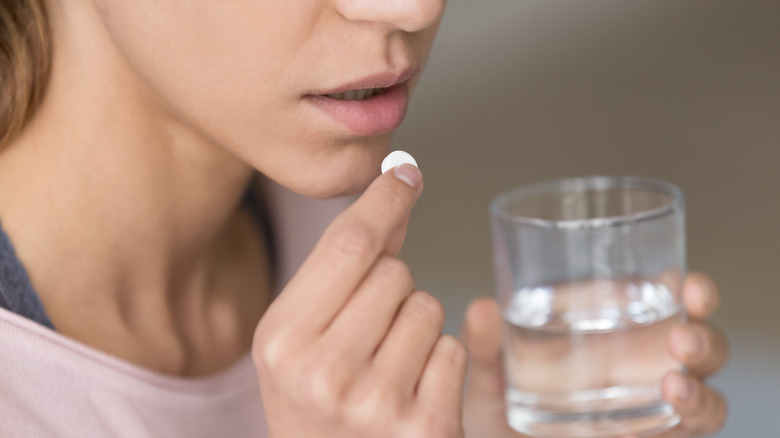How Anti-Seizure Medication Topiramate Can Treat Alcoholism
Alcohol use disorder (AUD) affects more than 14 million adults over age 18 in the United States, according to the National Institute on Alcohol Abuse and Alcoholism. It's considered to be a brain disorder affecting a person's ability to control or reduce their drinking even though there might be harmful social, occupational, or health consequences.
Treatments for AUD can include a combination of therapies. Alcohol counseling can help reinforce non-drinking behaviors and prevent relapses by teaching people how to manage stress and avoid drinking triggers. Support groups also help with relapses and offer peer support at convenient times and places. Non-addictive medications such as naltrexone, acamprosate, and disulfiram have been approved by the U.S. Food and Drug Administration (FDA) to help treat AUD.
Although the FDA has approved topiramate to treat seizures for people with epilepsy, research has found that the drug can reduce alcohol cravings, according to a 2021 study in Neuropsychopharmacology. The study investigated what areas of the brain were affected in people with AUD. The drug is considered to be a mood stabilizer that reduces excess activity in the brain, according to an article in StatPearls.
How topiramate reduces alcohol cravings
The study recruited 22 heavy drinkers for a larger 12-week investigation. The participants were diagnosed with AUD, and they wanted to stop drinking or reduce their drinking to healthy levels. On an average week, the men had 24 or more drinks and hoped to reduce it to 12 with no more than three drinks per day. The women averaged 18 or more drinks per week and hoped to get that number down to eight, with no more than two drinks per day.
The researchers scanned the brain activity of the people at the start of the study while they watched two videos. One video included people drinking alcohol and used language to persuade people to drink. The other video was used to measure baseline brain activity. After the baseline measurements, one group of people took 200 milligrams of topiramate for six weeks while another group took a placebo.
At the six-week follow-up, both groups watched the videos again while the researchers scanned their brain activity. The topiramate group had reduced activity in the parts of the brain associated with rewards. The drug also affected the memory connections that associated a trigger with its reward. The topiramate group also said they had fewer cravings for alcohol and drank heavily two to three days less frequently than at the start of the study.
Knowing the risks and symptoms of AUD
Although the researchers said more research is needed because the study involved a small number of people, they concluded that topiramate reduces the value of alcohol in the reward centers of the brain. The Recovery Research Institute said that this study can help make an argument to the FDA about approving the use of topiramate for AUD. Right now, it's being used off-label, which means it's being prescribed for uses other than what the drug was intended to treat.
Heavy alcohol use and binge drinking over time can lead to AUD, but your family history can increase your risk by 60%. Traumatic events, particularly in childhood, also increase your AUD risk. Mental health conditions also coincide with AUD. Another risk factor for AUD is how early you began drinking. You're more likely to have a problem with alcohol if you started drinking before age 15 than if you started later.
Several symptoms determine AUD and its severity. Finding yourself drinking too much or longer than expected or having failed attempts to cut down or stop drinking are symptoms of AUD. Drinking that interferes with your responsibilities to your job, family, or school can also signal a problem with alcohol. Giving up activities that are meaningful to you so you can drink alcohol might point to AUD as well.
If you or anyone you know is struggling with addiction issues, help is available. Visit the Substance Abuse and Mental Health Services Administration website or contact SAMHSA's National Helpline at 1-800-662-HELP (4357).



